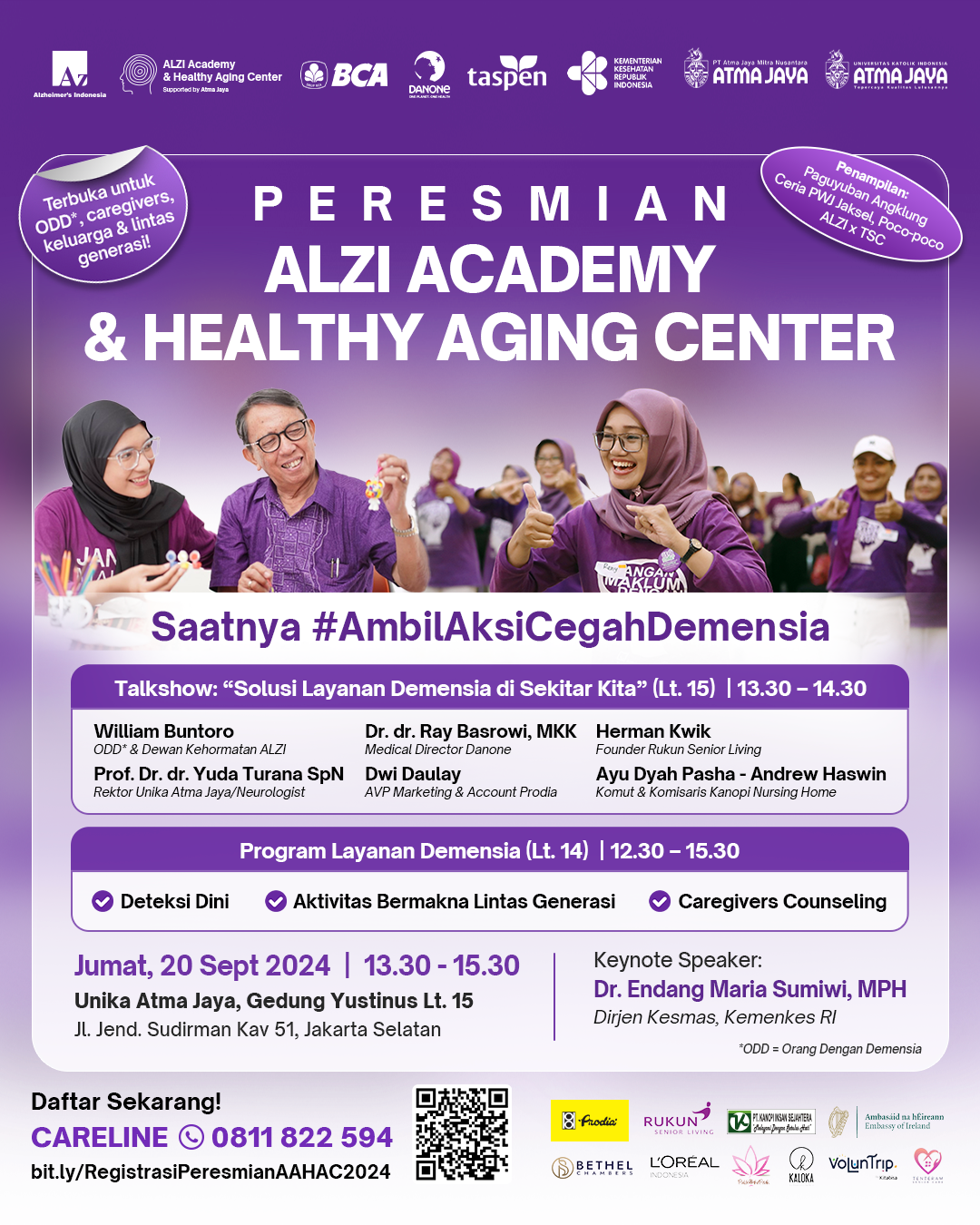
Myth 1: Only old people can get Alzheimer’s disease
Fact: This myth appears from the fact that the average age of people who were diagnosed with Alzheimer’s is 65 years and above. Despite that, people in their 30s – 50s can also get Alzheimer’s. The condition where a person under the age of 65 is diagnosed with Alzheimer’s is called Young-Onset Dementia (YOD). People with YOD usually have a strong genetic risk factor (this has to be proven by genetic testing). However, the percentage of dementia cases in young people is very low, only below one percent of the total number of people with Alzheimer’s.
Another fact which supports the widespread of this myth is the accurate diagnosis for Alzheimer’s takes a relatively long time. The first symptoms of Alzheimer’s are often related to stress, menopause, or depression (commonly happens in young people).
Myth 2: Memory loss is a natural part of aging
Fact: As people age, it is normal to have occasional memory problems, such as forgetting the name of a person you’ve just met. However, Alzheimer’s is more than just occasional memory loss. It’s a disease that causes brain cells to malfunction and ultimately die. When this happens, people with Alzheimer’s often forget the things which have just been said. They may also forget the name of an old friend, important moments of their life, or which path must be taken to get back to the house they’ve lived for decades.
Myth 3: Alzheimer’s is not fatal
Fact: No one is safe from Alzheimer’s. It destroys brain cells and causes memory changes, unpredictable behaviors, and body malfunction. It slowly and painfully erases one’s identity, ability to communicate with other people, think, eat, talk, walk, and find his or her way home.
Myth 4: There are many available remedies for Alzheimer’s
Fact: Alzheimer’s is the only disease which doesn’t have any available medicine to cure, delay, or stop its progression. The existing drugs only help treat its cognitive symptoms, such as memory loss, confusion, etc.
Translated by Stanislaus Demokrasi Sandyawan
Caregiver Stress & Burn Out
It is very normal for Alzheimer’s caregivers to feel tired, both physically and mentally. Besides the workload of being a caregiver, they also have their personal life to be thought of. Self-care is an important thing to do for caregivers to keep their caregiving quality at its best. Making time to do a hobby, taking care of themselves, attending caregiver support group meeting, consulting with a psychologist, and doing exercises are examples of self-care activities that can be done, meanwhile the task of caregiving people with Alzheimer’s is taken care of by someone else.
How to help the family of people with Alzheimer’s with facing their emotional ups and downs while taking care of their family member with Alzheimer’s at home?
Encourage the family or caregiver to express their thoughts without feeling guilty or judged. You can also teach them about methods of relaxation to ease the tension and exhaustion from taking care of people with Alzheimer’s. Give them suggestions that there are times when people with Alzheimer’s can do their activities at an adult day care center so the caregivers have some time to relax.
In an early stage, caregivers should divide their roles with other family members so the task doesn’t rely on only one person. To maintain the quality of their life, caregivers need to do the following activities:
Counseling
Get support from your close ones or professionals so your thoughts and feelings can be listened to, and do things that you want to do to face your emotions.
Relaxation
There are several relaxation techniques that can be done to relieve and reduce stress (Soraya Salim, S.Psi. and Michael Dirk R. Maitimoe, M.Psi.)
Is it possible to do a burnout test or measure our stress level?
Yes, these test results can be used for the caregivers to know their burnout or stress level and act as a reminder for them to take a break when it is the right time to do so. The steps are as follows:
- Make an appointment with a psychologist beforehand to get the commitment for the counseling sessions. The psychologist will ask you to tell about yourself, your family, and your problems.
- Give the test results (if needed) to measure your burnout or stress level and other psychological test results (if needed) to gain a better understanding of your personality. After this, there will be a counseling session regarding the efforts that you’ve done all this time. At the end of the session, the psychologist will give you homework to do and it will be followed up in the next session.
- Discuss the homework that you’ve done, what things that should be fixed or what efforts that want to be done in the future. The session will continue with identifying external sources, such as family, relatives, or any social support, that may help you face your problems.
- Do a follow-up based on the results of the last session and what changes that have or haven’t yet been felt. Evaluate the sessions and make short and long term plan that will be done with the help of external sources.
Caregivers often feel lonely, what are the solutions?
Below are several methods that can be done:
- Socialize by joining community activities related to your work so they give a sense of “everyone is going through the same thing as I do”
- Pursue your hobby to distract yourself from negative thoughts or sense of loneliness
- Find new places or activities that are able to make your life livelier and more colorful.
- Keep learning by attending seminars or workshops to broaden your knowledge and insights and also keep your brain active.
- Do exercises with others because the community atmosphere will help you regain your balance and keep you distracted from loneliness.
Translated by Stanislaus Demokrasi Sandyawan


